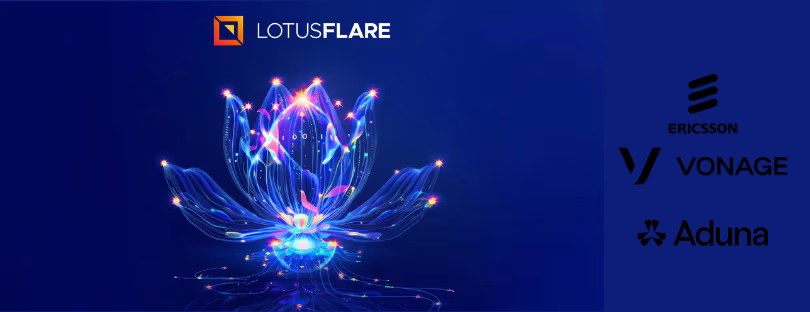
Global eSIM Market (2020 to 2026) – Key Acquisitions and Mergers
The Global eSIM Market size is expected to reach $19.2 billion by 2026, rising at a market growth of 17% CAGR during the forecast period.
Embedded Subscriber Identity Module (eSIM), also known as the Embedded Universal Integrated Circuit Card (eUICC), is a reprogrammable chip that is made available across the market either in soldered or in a removable form. It is a small chip which is used to authenticate the identity of the user with his carrier. ESIM is smart in terms of functions as it supports multiple accounts, enables switching to different mobile network operators (MNOs), and manages accounts simply by updating the user’s mobile phone software settings.
With the gradual growth of smart connected devices in every vertical market, the need for unified, scalable network-based devices is increasingly growing. The need for remote connectivity to manage devices is increasing. The number of smart system vendors is growing increasingly to support this need. ESIMs are becoming increasingly popular, as they enable users to manage all connected devices from remote locations, including cars, mobile phones, wearables, medical devices and others. ESIMs are becoming increasingly common with manufacturers of smart devices, as these SIMs have both ‘Machine to Machine’ capabilities and remote provisioning.
It is also expected that the global eSIM market will be fueled by the growing adoption of these SIMs by leading mobile manufacturers including Google and Apple. Manufacturers of smartphones are likely to allow eSIMs to boost their product offerings. On the other hand, users can only pick one profile from every profile at a time. This is a major disadvantage for eSIMs, which restrains market growth. Also, being a sophisticated technological evolution, the compatibility, connectivity and other issues with different manufacturers’ smart devices is also one of the major challenges for eSIM market growth.
Based on Application, the market is segmented into M2M and Consumer Electronics. M2M type is further classified into Automotive, Energy & Utilities and Others. Based on Solution, the market is segmented into Connectivity Services and Hardware. Based on Regions, the market is segmented into North America, Europe, Asia Pacific, and Latin America, Middle East & Africa.
The major strategies followed by the market participants are Partnerships and Product Launches. Based on the Analysis presented in the Cardinal matrix, Deutsche Telekom AG, Telefonica S.A., and Singapore Telecommunications Limited are the forerunners in the eSIM Market. Companies such as STMicroelectronics N.V., Thales Group S.A., Infineon Technologies AG, Giesecke & Devrient GmbH, Sierra Wireless, Inc., NXP Semiconductors N.V., and NTT Data Corporation are some of the key innovators in the market.
Recent Strategies Deployed in eSIM Market
Partnerships, Collaborations, and Agreements:
May-2020: Thales announced its collaboration with Google Cloud for expanding its eSIM Management Solution. Under this collaboration, Thales is expected to use Google Cloud technology for providing highly secure and scalable activation of eSIM (embedded SIM) capable devices. Thales deployed the world’s first GSMA-certified eSIM activation solution on Google Cloud. This solution offers telecom operators secure and highly scalable support to manage increases in mobile subscriptions for eSIM-capable devices.
Mar-2020: STMicroelectronics collaborated with Truphone, a GSMA-accredited global mobile network that operates its service internationally. The collaboration was aimed to launch a full-stack embedded SIM (eSIM) infrastructure solution. This solution was compliant with GSMA Machine-to-Machine (M2M) standards for Industrial IoT and automotive customers.
Oct-2019: Deutsche Telekom came into partnership with COMPRION, a leader in smart card compliance. The partnership was focused on developing a test system for the nuSIM initiative. COMPRION was aimed to provide test system expertise for developing qualification and functional certification programs for single entities in the nuSIM ecosystem. nuSIM is a strictly optimized integrated SIM solution that is expected to bring several new attributes to the IoT value chain, e.g. significant cost reduction, space savings, and increased overall simplicity.
Jul-2019: Deutsche Telekom collaborated with IDEMIA, a provider of security and identity solutions. Deutsche Telekom selected IDEMIA’s solution to ramp up its efforts to accelerate the launch of eSIM-enabled devices in its European affiliates. IDEMIA’s Smart Connect Entitlement ensured Deutsche Telekom will always have the very latest OEM specifications to support smartphones, wearables, and tablets on a cost-effective and easy-to-deploy platform.
May-2019: Infineon signed an agreement with Arrow Electronics and Arkessa. This agreement extended Arrow’s ability for supporting customers with cellular communications for the Internet of Things (IoT). In this agreement, Infineon aimed to provide the secured hardware controllers based on GSMA’s Embedded Subscriber Identity Module (eSIM) specification that underpin the new service whereas Arkessa was focused on providing secured mobile data services with the ability to provide and manage IoT devices from the factory into the field easily and effectively.
Feb-2019: STMicroelectronics teamed up with Sequans Communications, a company that markets integrated circuits for 4G mobile phone technology. The collaboration was aimed to bring LTE for IoT connectivity to the MCU ecosystem and accelerate its adoption. Following this collaboration, the companies have developed a dedicated cellular extension board for STM32 Discovery kits based on Sequans’ Monarch LTE-M/NB-IoT technology. ST also enlarged its STM32CUBE cellular software library to support Sequans’ existing Monarch-based module, GM01Q. The kit includes a switchable SIM interface, eSIM, and MicroSIM, a high-performance antenna for frequencies between 700 MHz – 2100 MHz, and free drivers and code examples.
Acquisition and Mergers:
Apr-2020: Infineon Technologies acquired Cypress Semiconductor Corporation. The acquisition strengthened Infineon’s broader range of applications. Cypress added a differentiated portfolio of microcontrollers, connectivity components, software ecosystems, and high-performance memories.
Jan-2020: Sierra Wireless took over the M2M group of companies, a company focused on IoT connectivity services and cellular devices in Australia. The acquisition broadened Sierra Wireless’ IoT solutions business in the Asia-Pacific region.
Dec-2019: NXP Semiconductors completed the acquisition of Marvell’s Wireless Connectivity portfolio. The acquisition enabled NXP to provide complete, scalable processing, and connectivity solutions to the customers across the end markets.
Mar-2019: NTT Communications took over Transatel, a global Internet of Things (IoT) cellular connectivity management provider and Mobile Virtual Network Enabler (MVNE). The acquisition enabled NTT to drastically extend its Global IoT solution offering.
Sep-2018: NXP took over OmniPHY, a provider of automotive Ethernet subsystem technology. Following the acquisition, the latter company’s interface IP and communication technology have been combined with NXP’s automotive portfolio. The acquisition enabled NXP to provide secure connections and infrastructure for embedded applications.
















